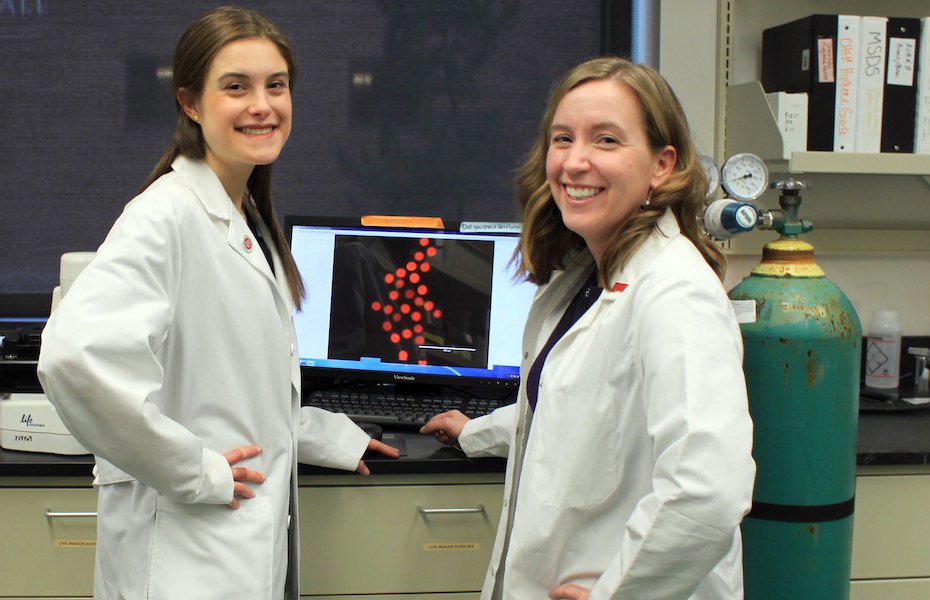Caroline Kratka, a Rutgers University—New Brunswick student, knew from an early age that she wanted to study reproductive medicine.
Her father is a senior embryologist at a New Jersey clinic specializing in such procedures as in-vitro fertilization.
“When I was little I would come to his lab to watch him work,” said Kratka, a School of Arts and Sciences and Honors College - Rutgers University, New Brunswick senior. “I was fascinated.”
Even as a student at High Technology High School a Monmouth County school that emphasizes STEM disciplines, Kratka stood out for her commitment to reproductive science.
“Everyone else was doing typical science fair stuff and there I was watching embryos hatch on time-lapse videos,” she quips.
But Kratka’s connection to reproductive health runs deeper than her facility for the science. You might even say that the field is hers by birthright. She and her three siblings were born through assisted reproductive technology procedures used to treat infertility.
“I feel very fortunate that my family had access to these procedures and were successful,” she notes. “I hope I can contribute to this field and help others who need these options.”
At Rutgers University, she found a major to match her passion, and a research opportunity that has her working alongside scientists dedicated to advancing reproductive medicine. Kratka is majoring in genetics and working in the laboratory of Karen Schindler, a professor in the Rutgers Genetics Department studying the causes and consequences of infertility in women.
“Our major interest is in understanding how women make eggs and why that process is inherently error-prone in humans,” Schindler says. “These errors can cause early miscarriage, infertility, or developmental disorders like Down syndrome.”
FULL SOURCE: School of Arts and Sciences Facebook | Caroline Kratka
